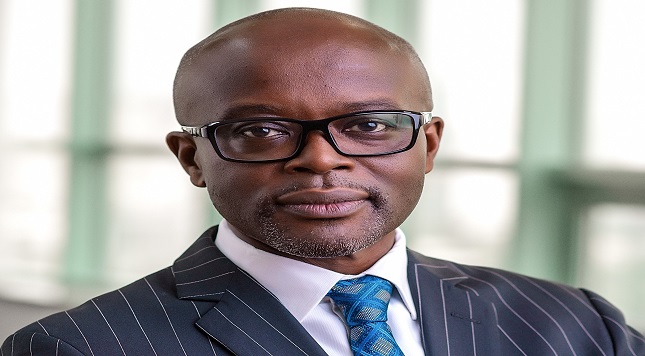General News
Sheriff Opens Up on Boko Haram, Says Chad Has Solution

Senator Ali Modu Sheriff, former governor of Borno State, has opened up on what he knows about the Boko Haram insurgents currently ravaging states in the northeast and some other parts of the country, while disclosing that only the neighbouring Republic of Chad could help solve the menace.
Sheriff, while speaking in a BBC Hausa Service magazine programme (Gane Mini Hanya), yesterday, revealed that the radical religious sect actually started in Yobe State in 1992, and that he has been trying to find a lasting solution to it, including talking to the Chadian government.
He denied reports saying that Boko Haram started during his tenure as governor of Borno State between 2003 and 2011.
But it would be recalled that when the #BringBackOurGirls campaigners visited the Chadian embassy in Abuja recently to find out the connection between Chad and the Boko Haram insurgents, the ambassador had said that his government had no connection to the sect.
The ambassador also alleged that if there was any person that should be held responsible for this problem, it should be the Nigerian government which had repeatedly claimed to know where the Chibok girls are being kept.
When the ambassador was queried on the alleged report of the botched ceasefire deal, which was celebrated across the country and handled by the Chadian President, Idriss Déby, and the report that Mr Mahamat Bichara Gnoti, a close associate of the Chadian president, was reported to have been apprehended on the Chadian-Sudan border with 19 SAM2 missiles he allegedly purchased from the Sudanese army for Boko Haram terrorists, the ambassador noted that he only read about the news on the pages of newspapers just like other persons.
But the former governor, who is also at the centre of a controversy surrounding the sponsorship of the Boko Haram insurgency, following claims by an Australian negotiator, Steven Davis, that he and a former chief of army staff, General Azubuike Ihejirika, were allegedly backing the insurgents, said Chad could help in solving the issue.
He alleged that the Borno State government was responsible for the orchestrated plot to frame him up with the Boko Haram sponsorship allegation in order to defame his character.
Keeping mute on how Chad could possibly help in solving the problem, Sheriff added that since he is one of the few politicians that has benefitted greatly from the kindness of Borno State, as such he is doing whatever it is to help solve the insurgency.
“Nothing preoccupies my mind in Nigeria presently like the return of peace in Borno. When Borno State was peaceful, there was no place I cherished to stay in the world like Maiduguri. I, my friends, my confidants, my parents and all the schools I attended are in Maiduguri.
“Therefore, I am more concerned than anybody in this country, because what Borno State did for me has not been done to any other indigene. You know, in Borno State, a governor has never been re-elected apart from me; in Borno State, no senator has ever been elected thrice apart from me. So, Borno people have done everything for me, and there is no one in this world that I know other than Chad, which I think could help Borno,” he said.
On his belief that he was being framed, Sheriff said: “They defamed my character, and when they started it, I once told journalists that it was plotted in Maiduguri. We know the plotters, their motives, and that by the grace of God, the truth will prevail; and now, the arrested impostors have said it all to the world.”
The former governor alleged that the current Borno State government’s connection with plot to defame him became glaring when the government quickly came out to disown one of the impostors, Junaid Idrissa Khadi, who was until four months ago a special adviser to Governor Kashim Shettima, but rather said Khadi remained his (Sherrif) known associate because he had earlier served his government before Shettima engaged him allegedly under pressure from him.
“This is nonsense. If I had forced him (Khadi) on them, then why will he connive with a Whiteman to implicate me, that I am a Boko Haram member? If at all I helped him to be engaged, then he won’t implicate me…and I have instructed my lawyers to file charges,” he said.
It could also be recalled that President Goodluck Jonathan had on two occasions visited the Chadian President Idriss Derby, in September and November this year, towards finding a lasting solution to the insurgency problem.
Jonathan however came under attacks from individuals and the opposition All Progressives Congress (APC) after it was discovered that Sheriff was part of the high-level meeting between him and his Chadian counterpart in September. Their anger was predicated on the fact that the former governor was at that time accused by Davis of allegedly sponsoring Boko Haram.
Sheriff, who lauded the federal government’s counter-insurgency effort in the interview, however, denied the insinuations that the Boko Haram started during his tenure as governor.
“This is not true. The Boko Haram issue did not start during my tenure. If you don’t know, let me educate you today. Boko Haram started in 1992 at Kalama in Yobe State, and at that time, I was not a governor. So, if anybody tells you it started during my tenure, he may be part of my traducers. But the truth is that it didn’t start during my tenure,” he added.
Meanwhile, the Borno State government, through Governor Shettima’s spokesman, Isa Gusau, has denied any government-sponsored plot to tarnish the image of the former governor, saying the government in Maiduguri was only concerned with the weighty allegations against Sheriff as an indigene of the state.
He also added that the incumbent state governor has nothing to gain from Sheriff’s predicament.
Gusau, in an interview with the BBC Hausa Service yesterday, said: “Governor Kashim Shettima has nothing to gain from the allegation against Ali Sheriff. In fact, to him, it is even shameful that a Borno State indigene, whom the governor has interacted or is connected with, is linked to what is happening. So, Governor Shettima’s connection with this saga is unnecessary.”
General News
Conoil Bonanza Winners Emerge

Conoil Plc is spreading joy this Valentine season as the first group of winners in its Valentine Bonanza promotion have been announced and rewarded. Launched on February 14, the campaign continues to delight customers at participating retail outlets.

The initial raffle draw, conducted on February 21, saw fortunate customers receive ₦10,000 worth of free petrol each. The draw was carried out publicly, with media representatives present to ensure full transparency. With the promotion still ongoing, more customers have the opportunity to join in and potentially be among the next winners.
A Conoil Management spokesperson explained that the initiative is a way to show appreciation to loyal customers for their ongoing support. “Our customers have responded impressively to the bonanza, with strong participation recorded across our stations,” the spokesperson said.
The second and final phase of the promotion is now in motion. Customers who purchase at least 10 litres of petrol at any participating Conoil station remain eligible to win in the grand finale raffle.
The grand finale is set for February 28 at 12 noon. Motorists in Lagos and Ogun states are encouraged to visit Conoil outlets to collect their tickets and take part in the exciting conclusion of this Valentine celebration.
General News
PalmPay Couples Show How Love Is Funded Digitally

PalmPay users took to the #LoveWithPalmPay campaign to show how experiences are powered through seamless banking.

It’s the month of love and social media has been filled with couples showing affection with gifts. As digital payments become embedded in everyday life, the way relationships are planned, funded, and experienced is evolving.
Recent insights from SBM Intelligence 2025 ‘Love in the Air’ report show that despite economic pressures, most Nigerians still set aside dedicated budgets for Valentine’s Day, with the largest percentage planning to spend between N51,000 and N100,000, while less than 5% are willing to spend above N500,000.
This growing intentionality highlights the need for platforms that help people manage their money more effectively, offering features like free transfers and tools that make it easier to send, track, and preserve funds while still showing up for meaningful moments.
Through the #LoveWithPalmPay campaign, PalmPay set out to show how the platform is enabling users to plan, pay, and celebrate meaningful moments with greater ease.
During the Valentine’s season, PalmPay invited couples across Nigeria to share their stories through the #LoveWithPalmPay campaign, celebrating how digital banking supports their individual expressions of love.
The campaign saw strong participation, with many PalmPay couples submitting entries that showcased how they use the app to plan surprises, pay for outings, and stay connected through everyday transactions.
From these entries, four couples were selected, each showcasing how PalmPay has enabled fast and reliable transactions in key moments.
One video from @simply.omotoshan, one of the selected couples, captures the role of seamless payments in making their spontaneous moments possible.
She said in her entry video: “Our cutest money moment with PalmPay was when we planned our Valentine’s picnic and realized we had forgotten half of the things we needed; literally, half of everything. We rushed to the mall to get cakes, food, decorations, and all the essentials. When it was time to pay, we used PalmPay.
“The transaction was smooth, fast, and stress-free. In no time, we were done setting up our Valentine-themed picnic with everything perfectly ready. Honestly, all our experiences with PalmPay have been easy and satisfying, but this one is definitely our cutest money moment. Thank you, PalmPay.”
A testimonial from the fourth selected couple, Mohammed and his wife, reflects his excitement: “Hello PalmPay, thank you so much for selecting us as one of the winners of the #LoveWithPalmPay campaign. We truly appreciate this. My wife and I are very grateful. Thank you, PalmPay, for the love and support. We’re so happy and thankful for the N100,000 reward. We love you, PalmPay, and long live PalmPay. Thank you so much.”
Beyond the feel-good stories, the campaign reflects a broader shift: fintech is no longer just about transactions, it’s about enabling experiences. Reliable payments, fast transactions, and accessible financial tools reduce the friction that can disrupt important moments, allowing users to focus on connection rather than logistics.
From paying for dinner to managing other expenses, PalmPay continues to demonstrate how digital financial services support modern relationships, proving that in today’s economy, love is not only felt, it’s funded digitally.
General News
KPMG Strengthens Africa Leadership to Support Long‑term Growth Across the Continent

KPMG has appointed Tola Adeyemi as Chief Executive Officer for KPMG one Africa, alongside the addition of Professor Olayinka David‑West and Dr. George Njenga as independent members of the Africa Governance Council (AGC).

Effective from March 2026, the appointments reinforce the firm’s leadership expertise, underscore a long‑term commitment to Africa and highlight confidence in the continent’s growth potential.
“Africa is one of the most dynamic and promising regions in the global economy, and KPMG is committed to playing a meaningful role in its growth story,” said Tola Adeyemi, incoming CEO for KPMG One Africa.
He continued: “It is a privilege to step into this role at such a pivotal moment for both KPMG and the continent. I look forward to building on our strong, connected and high‑performing base to deepen collaboration and deliver consistent quality and impact across our markets.”
KPMG is recognised globally for its commitment to quality, integrity and professional excellence, supported by a strong global network of member firms. Trust remains the foundation of the audit and accounting profession, with high standards of governance, ethics and audit quality increasingly demanded across Africa’s public and private sectors.
KPMG One Africa’s approach brings the continent closer together with strong leadership to strengthen cross-border collaboration and offer shared expertise and consistency which is business‑critical to help clients navigate complex risks and unlock sustainable growth opportunities.
Commenting on the appointment, Professor Ben Marx, Chairman of the Africa Governance Council, said: “Tola Adeyemi is exceptionally well positioned to lead KPMG One Africa. In addition to his global perspective as a member of the KPMG Global Council, he brings significant influence and credibility as a respected business leader across the continent.”
The appointments of Professor David‑West and Dr Njenga to the Africa Governance Council, which provides board level governance, further strengthens independent oversight, bringing strong academic credentials alongside deep strategic and business expertise.
“These appointments reinforce KPMG’s commitment to strong governance, accountability and leadership depth,” Marx added. “They complement our established African leadership team, in‑country managing partners and regional senior partners, further enhancing our client‑centric approach across Africa.”

 E-Business2 days ago
E-Business2 days agoAfDB, UNDP Launch $10Bn AI Initiative for Africa

 Telecom2 days ago
Telecom2 days agoGrey Expands Cross-Border Banking with USD Accounts, USDC Support

 General News1 day ago
General News1 day agoKPMG Strengthens Africa Leadership to Support Long‑term Growth Across the Continent

 News3 days ago
News3 days agoObasanjo, Vanguard’s Amuka Lead Prayers for Zinox Chief Leo Stan Ekeh @70

 News2 days ago
News2 days agoLotus Bank, REA Seal N100Bn Deal to Power Rural Nigeria

 News2 days ago
News2 days agoDG NITDA Reaffirms FG Commitment to Responsible, Inclusive AI

 E-Financial2 days ago
E-Financial2 days agoCBN Cuts MPR by 50bps to 26.50% as Inflation Eases for 11th Month

 E-Financial2 days ago
E-Financial2 days agoKuda Bank Teams Up with Lovers & Frnds for Inclusive Valentine’s R&B Bash


























